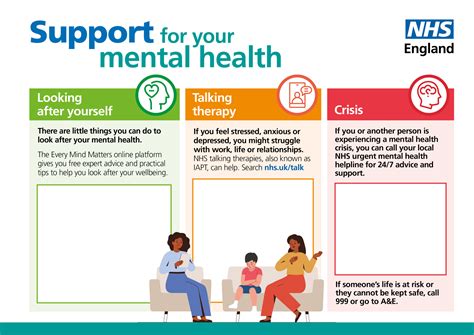12 Anxiety Quiz Questions To Identify Symptoms

Anxiety is a pervasive and often debilitating mental health condition that affects millions of people worldwide. It can manifest in various ways, from feelings of unease and apprehension to full-blown panic attacks. Identifying symptoms of anxiety is the first step towards seeking help and managing this condition effectively. Here are 12 questions designed to help you understand whether you might be experiencing symptoms of anxiety. Please note that this quiz is not a substitute for a professional diagnosis but rather a tool to encourage self-reflection and potentially prompt further discussion with a healthcare provider.
- Do you often find yourself worrying about things that are unlikely to happen?
- Yes
- No
- Occasionally
This question touches on the tendency to catastrophize, a common trait in individuals with anxiety, where they might excessively worry about future events that are beyond their control.
- Have you recently been experiencing difficulties falling or staying asleep due to racing thoughts or an inability to relax?
- Yes
- No
- Occasionally
Sleep disturbances are a frequent companion to anxiety, as the mind’s constant activity can make it challenging to achieve a restful state.
- Do you feel overwhelmed by your daily responsibilities or tasks, even when they seem manageable to others?
- Yes
- No
- Occasionally
Feeling overwhelmed can be a sign of anxiety, where the pressure of tasks, no matter how small, can seem insurmountable.
- Have you noticed yourself avoiding social gatherings or events because you feel anxious about being around other people?
- Yes
- No
- Occasionally
Social anxiety is a specific type of anxiety that involves fear of social or performance situations in which the person is exposed to possible scrutiny by others.
- Do you frequently experience physical sensations such as a racing heart, sweating, or trembling without an apparent reason?
- Yes
- No
- Occasionally
These physical symptoms can be manifestations of anxiety, as the body’s “fight or flight” response is triggered even in the absence of real danger.
- Have you been experiencing persistent fears or worries about specific objects, situations, or activities?
- Yes
- No
- Occasionally
Specific phobias or generalized anxiety can lead to persistent fears that interfere with daily life.
- Do you find it hard to concentrate on tasks or make decisions because your mind is preoccupied with worries?
- Yes
- No
- Occasionally
Difficulty concentrating and making decisions can be symptoms of anxiety, as the preoccupation with worries can impair cognitive function.
- Have you noticed a significant change in your appetite or eating habits that you associate with feelings of anxiety?
- Yes
- No
- Occasionally
Anxiety can lead to changes in appetite, with some individuals experiencing increased hunger and others a decreased desire to eat.
- Do you often feel restless, on edge, or have an overwhelming urge to move or engage in physical activity?
- Yes
- No
- Occasionally
Restlessness and an inability to relax are common symptoms of anxiety, reflecting the body’s heightened state of arousal.
- Have you been using substances (alcohol, drugs, etc.) as a way to calm your nerves or reduce anxiety?
- Yes
- No
- Occasionally
While substances might provide temporary relief, they can exacerbate anxiety in the long run and lead to dependency.
- Do you frequently replay conversations or events in your head, worrying about how they could have gone better or what others might think of you?
- Yes
- No
- Occasionally
Rumination, or the tendency to repetitively think about negative experiences, is a cognitive pattern associated with anxiety.
- Have you felt like you’re missing out (FOMO) on important events or experiences because your anxiety holds you back?
- Yes
- No
- Occasionally
FOMO can be both a cause and a consequence of anxiety, as individuals might worry about missing out due to their anxiety, creating a vicious cycle.
Understanding Your Responses
If you’ve found yourself identifying with several of these questions, it might be helpful to consider speaking with a mental health professional. Anxiety, while common, is a treatable condition, and there are numerous strategies and therapies that can help manage its symptoms. Remember, acknowledging the possibility of anxiety is the first step towards a journey of understanding and recovery.
Further Steps
- Consult a Healthcare Provider: Discuss your feelings and symptoms with a doctor or a mental health specialist. They can provide a proper diagnosis and recommend appropriate treatment options.
- Learn About Anxiety: Educating yourself about anxiety can help demystify the condition and empower you to manage it more effectively.
- Practice Self-Care: Engage in activities that help reduce stress and promote relaxation, such as exercise, meditation, or hobbies.
- Reach Out for Support: Talking to friends, family, or support groups about your feelings can provide valuable perspectives and help you feel less isolated.
Conclusion
Anxiety is a complex condition that affects individuals in unique ways. By acknowledging its symptoms and seeking help, it’s possible to develop coping strategies and improve overall well-being. Remember, you’re not alone in this journey, and there are resources available to support you every step of the way.
What are the first steps in managing anxiety?
+The first steps in managing anxiety include recognizing its symptoms, consulting with a healthcare provider, and starting to learn about the condition. Practicing self-care and reaching out for support are also crucial initial steps.
How do I know if my anxiety is severe enough to seek professional help?
+If your anxiety is interfering with your daily life, causing significant distress, or leading to avoidance of activities you once enjoyed, it may be time to seek professional help. A mental health professional can assess your symptoms and provide a proper diagnosis and treatment plan.
Are there any self-help strategies for managing anxiety?
+Yes, there are several self-help strategies for managing anxiety, including regular exercise, mindfulness practices like meditation, keeping a journal, engaging in hobbies, and maintaining a healthy diet and sleep schedule. These practices can help reduce anxiety symptoms and improve overall mental health.



